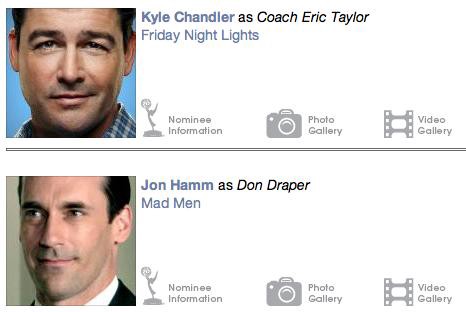A Q&A with the Advice Columnist Called 'Sugar'
by Matt Davis

Last year, an anonymous writer took over the advice column Dear Sugar at The Rumpus. Soon, she’ll go public with her identity. Like many others, I’ve become obsessed with her advice. Her column isn’t about etiquette. Sugar writes about being jealous of other writers. She advises people to leave secure relationships because they just know they’re not happy. She tells about how she made it through the “thicket of shit” in her twenties. She writes about the absolute horror of grief. And it’s not about sex, either. Sugar is soooo over the idea that sex is the only way to connect emotionally or be fulfilled.
And, it turns out, I know who Sugar is — she and I have actually known each other for a few years, but I didn’t know I knew. Would the magic hold, now that I knew her identity? How much does her anonymity inform the power of her advice? And OH MY GOD, now she’s planning to divulge her identity to EVERYBODY? Sugar agreed to talk about all this and more if I agreed to keep her identity a secret for just a little bit longer.
Matt Davis: So, who am I interviewing? [Sugar’s real name], or Sugar?
Sugar: Well, you asked to interview Sugar.
I guess we’ll get to that. I mean, that’s the fun part of it, right?
Right. Who are any of us? We’ll talk about that, too. Who is Sugar? I mean, Sugar is me. You know. I just won’t tell you my name, that’s all. I don’t tell you the city I live in, I don’t tell you my name, and I don’t tell you the place where I grew up. But I tell you pretty much everything else.
I knew you before I knew who you were. I was saying how good your writing was as Sugar, on Facebook. And then you contacted me to say ‘actually you know it’s me, right?’
I thought you knew it was me! Because basically, when I became Sugar I did tell [a mutual friend]. I just said ‘hey, I write this advice column,’ and I knew he told a few people and I just assumed you were one of them. So I thought you knew. So when I emailed you, ‘you know I’m Sugar, right,’ I was surprised.
I’ve been going through a divorce, and your work was very helpful in carrying on. So I was evangelizing the work. I didn’t know who you were, I was really positive about the work. And then to hear that I already knew you was quite disconcerting, actually.
I think that’s going to be disconcerting to a lot of people. Because one of the most difficult parts for me about being Sugar is when writers that I know, you know, friends, colleagues are writing about me or blogging about me and I don’t tell them. I told you because I sort of thought that you already know, and I don’t quite keep track of who knows, but it’s sort of disconcerting to me because I’ve got to keep this secret with people who I actually know. It’s going to be interesting, when I come out, how they’re going to respond. But also people guess. Anyone who’s really read my work, I get an email once a week or so saying ‘you have to be Sugar,’ and I’ll say, you know, ‘yeah, and please keep my secret.’ So, probably, a hundred people maybe.
Well there goes my business plan, because I was thinking I could just offer to tell people who you are for money. So when are you planning on coming out?
But Matt, that’s the thing, it’s all relative. Because let’s say a hundred people know. I’ve told certain people, Stephen Elliott’s told certain people, Isaac Fitzgerald, who’s the managing editor of the Rumpus, he says he tells certain women whom he wants to sleep with, you know, he says ‘if you’ll do me, I’ll tell you who Sugar is,’ so, and I think he’s only partially joking.
No I think he probably is, too. That’s amazing.
Most of the people, even if they knew, ‘[Sugar’s real name]’ doesn’t mean anything to them. So. I mean, I’m anonymous if you don’t know who I am, right?
I guess so. But your work has found an audience irrespective of the Sugar stuff, right?
Yes. It has, absolutely. But most people, they’re going to say, ‘I’ve never heard of her.’ But we sort of got into this before, I wanted to ask you first, how are you? And I’m sorry to hear that you’re going through a divorce.
That’s alright, that’s really kind of you. I’m fine. It’s not ideal, but at the same time, you do know, at some point, don’t you, when it should be over. There’s a voice somewhere.
I’ve written about that very thing!
I guess that’s one of the risks of coming out, is that people are going to start quoting your columns back to you, when you ask them how you are.
Yeah. Absolutely. Certainly. And you do know when it’s time to go. I mean, I’m turning that back to you now. I know how painful that is, whether you’re the one who knew you had to go or the other person was, it’s like hell. But there will be better days ahead, Matt.
Yeah, I hope so. I mean, the other thing that’s interesting about your column is, you are quite affirming, and a lot of the advice is about being brave and taking decisions that aren’t easy. And in fact when you are a recently separated 30-year-old man, often there are difficult decisions to be made that aren’t easy. I have made decisions, and in the moment of making those decisions I have thought of your column and thought, ‘Well, this is what Sugar would advise,’ so that’s good. It’s affirming and it’s really helpful. So it’s very nice that you asked how I am. The other thing, in your column, is that you express love for your readers.
There are so many parts of this experience that are weird to me. In my work as a literary writer, even though I think my work is inherently political, I never have a message in mind, my novel doesn’t have a message, but Sugar has a message.
Tell me what that message is.
I have never read a self help book in my life. I think self help is pretty much bullshit. I don’t pay attention to this…what’s that Oprah book, like The Secret, or some sort of crap like that?
Well it’s so many things that I feel like, what you could do, if you read all of my columns they do boil down to some pretty essential truths. You hit on one of them when you said ‘the hard choice is often the best one,’ that life is both more simple and more complex than most of us would like to believe, that there is something about the essential, that we all have an essential truth within us which if we really listen to that, which is totally different than that bumper sticker ‘follow your bliss,’ which is bullshit. You know? And that’s, I have never read a self help book in my life. I think self help is pretty much bullshit. I don’t pay attention to this…what’s that Oprah book, like The Secret, or some sort of crap like that? ‘If you only believe, then it will be true,’ I think that’s a really aggressively entitled bullshit sort of approach to life’s complicated questions. And at the same time there’s a piece of that in Sugar that says ultimately we’re all responsible for our lives, we’re all going to fail, we all have something inside to offer, and our work here is to find out and express it in whatever channels are appropriate. So it’s not Sugar’s message, but it’s really just my life, everything I think about how to live, which is in opposition to that self help crap.
Yeah, and oddly the self help crap is extremely commercial. And what you’re doing is so far, not. I mean, the writing you do under your own name is, I’m assuming, is giving you some money.
Yeah.
But the writing you’re doing as Sugar, you’ve not been paid for a column.
No.
What are they doing? What are they thinking? I mean, you must be generating three-quarters of their hits by this point.
It’s a little complicated because I work really hard on the column and takes a lot of time. I get so much email, I have thousands of emails from readers. But nobody gets paid at The Rumpus. That’s the thing. And I knew that going in. Stephen Elliott and Isaac Fitzgerald really do the work of the site and Isaac works there full time. They’ve also sold tons of mugs, the ‘write like a motherfucker’ mugs, and so I’m happy that Isaac gets to earn a living wage now. A couple of months ago Stephen and Isaac sent me a thousand dollars, because I think they felt guilty.
And you retain the rights to the column.
I do. So basically my answer to how I get paid is, I’ll get paid eventually if there’s a Sugar book. And I’m happy to wait, I mean, I took it on as a lark. I thought it would be an interesting project for me as a writer. There was an old Sugar for the first 26 columns.
Who was it? You can’t tell me, can you?
I don’t know. Well, you’re a reporter, you know.
What was the plan for coming out? When were you going to come out?
I’m going to San Francisco, and I’m going to come out at one of The Monthly Rumpus events.
The Monthly Rumpus. What’s that?
The second Monday of every month they do a big thing at The Makeout Room. And the plan is my next book — one I’ve written under my own name — will be a Rumpus book club pick, and I’m going to announce that Sugar’s book is going to be the book club pick and Sugar’s going to have a coming out party in San Francisco.
There’s also been talk of a book of your Sugar columns.
Yeah. There has been.
And when is that going to come out?
I’ll let you know as soon as I do.
You know, there’s a cricketer named Sachin Tendulkar, and apparently they’ve made, like, 50 copies of a book that’s written in his blood. And it was Saddam Hussein who had a book written in his blood. Saddam Hussein had people come and do blood transfusions and then write the Qu’ran in his blood. I think that you should consider some sort of limited edition copies of a Sugar book.
I think that’s a really interesting idea.
Well, only because, this guy described your work as ‘sacred’ to him. Now I’m not suggesting you should be blaspheming with the production of a Sugar book, but there is an aspect in which this means a lot to people, so… surely, maybe there’s a market… I’m not saying you should bleed for the book.
Well it’s fascinating because a Sugar book is not commercial in a traditional sense. My columns are really long…I have absolutely no limitations placed on me.
And they publish 15 minutes after you send it in, right?
Yeah.
And that’s unusual.
Yeah, nobody fucks with it. I have [Mr. Sugar] read it, and he says yeah, and it goes live. And I usually do it all night long on a Wednesday night, and I curse myself, and it’s tortuous, and I’m pissed, because I think, why didn’t I do this fucking earlier like I said I would do, and I’m always up on this deadline, and it’s really strange because it’s really contrary to everything I’ve ever said about the way one should write with time. But it’s odd, this thing about it not being commercially viable, because the audience is really responding. I mean, people have written to me as [Sugar’s real name] and said amazing things about my work, but as Sugar, the love is unbelievable. The way that people…people write to me and say ‘you changed my life, I thought of you when I was thinking about doing this, you helped me understand something that I’ve been going to therapy for years trying to understand,’ and what’s weird about that is that the gatekeepers have decided that Sugar’s not commercial. But the people have decided that it is.
It’s a revolution!
It is.
Are you jealous of yourself?
That’s a funny thing. I’ve almost joked before on Twitter that Sugar is jealous of her real person because Sugar has more followers, and all that stuff. I think that, I’m not…I think the Sugar fans will go buy the book I’ve written as myself. What’ll be interesting is beyond that.
Are you concerned that the readership may drop off after you identify yourself? Are you concerned about hostile reactions? Are you concerned about, Oh, well…I mean, I thought you were Judy Blume.
You thought I was Judy Blume? Sugar says she’s 42. I mean, everything I say about myself is true.
So are you concerned about a hostile reaction when you come out?
You’d think I’d get all these private, nasty emails, and I don’t. I’ve gotten maybe two in maybe a year. Sometimes people write to me because they disagree but they’re always very respectful. I’ve had two people that have just been mean but you’d think it was more than that. So: What am I scared of? I’m not scared that people will be hostile. A lot of people have written to me and said they’re scared of finding out who Sugar is because they fear that maybe some of what is happening will stop happening. [Mr. Sugar] was saying ‘I think you should stay anonymous forever, because if you come out, it’s going to ruin that mystique….’ I think that people feel that they can really be open with me because they don’t know who I am. And the longer that we’ve gone down this path, the less I think that’s important. And perhaps it’s because several readers, some of my biggest fans, people who are really really into Sugar, they have this relationship with Sugar, and they’re always emailing me and direct messaging me, and they’ve figured out who I am, and they all said, like, ‘I was afraid I wouldn’t love you as much and I still totally do, it doesn’t matter to me that I know who you are.’ And so I guess I’m going to go on that. But I won’t be Sugar indefinitely. I won’t stop being Sugar as soon as I come out, but there will be probably be a time when I decide to stop. The way I write the column, I’m not just Dear Abby or something, I’m not just giving you etiquette advice, I’m really writing about core issues. And I think there’s a point at which I’ve spoken my piece.
You’re sort of…spent.
I’m spent. And also it’ll reach a point where it’s like, ‘see column X,’ you know? And it already feels like that, in some regard, and also the way I write the column, it’s me writing about my life. One thing that’s going to be cool about coming out is I’m going to be able to write about a bunch of stuff that I was scared about writing about before because I just thought it would be too identifying. You can Google any number of things from my columns and probably find myself.
It’s interesting that your husband was pushing you to keep the mystique, too.
What do you think?
I think you should keep the mystique.
You think I should?
Well, I’m a romantic. I don’t doubt that if you do come out, everyone’s going to love it, and I don’t doubt that it’s going to be wonderful for everyone involved. But there is a kind of romance in…like, I love Batman. Batman is my favorite, and Batman and Bruce Wayne couldn’t exist without each other. They couldn’t. But the mystique about Batman is kept because he doesn’t tell anyone who he is. And there’s a great scene, it was on Youtube the other day, where Batman and Bruce Wayne have to have a conversation with each other in front of the commissioner. And there’s this sort of façade, but there’s this sort of beauty to it. Before this interview I was going to say, ‘I should give you some advice.’ And that would be it: Keep it private. But then there’s also, could you still make money if it were private? If I were in your position, I would claim it, I would say, ‘That’s me. Hello. I’m here. And let’s go for it.’ And I think that’s something that a lot of authors are scared to do, to claim their work.
Well there’s also that other thing, actually being Sugar has been a real exercise in ego, and not getting to take credit for something that so many people love. I’ve been at parties and people are like, ‘you have to read this column,’ you know? And I’ll just be like, ‘yeah, okay,’ because you work your whole life for people to love what you write, and then they do, and you have to pretend it’s not you.
But isn’t that an incredible lesson to learn as a writer?
It’s a great lesson.
Whether or not you do come out. You get what you wanted, and it turns out that you can’t take it.
I can’t have it!
And there’s a real wisdom that comes in being able to say, ‘I want to be able to take credit for this.’
Yeah. And I could get paid. The publishers and people would know who I was, and they’d pay me. It is partly a money thing because if I don’t come out as Sugar, then those people don’t buy [Sugar’s real name]’s books. And that bugs me. Meanwhile my book is languishing, and if I just said, then they’d go buy that book.
It’s difficult as an author to be in a position where somebody says, ‘hey, do you want to sell, maybe, 100,000, 200,000 more copies of your novel?’
I want to do something really fun in San Francisco, jump out of a cake or something. I think it’ll be a good, fun, thing. But you still want me to stay anonymous. You want me to be Batman.
This is how I make my living, Matt. It’s hard. So part of coming out also feels like, people mostly want me to. Please tell us who you are. So it’ll be kind of fun to say here I am. And I want to do something really fun in San Francisco, jump out of a cake or something. I think it’ll be a good, fun, thing. But you still want me to stay anonymous. You want me to be Batman. It’s interesting that you use that comparison because so many people write about Sugar either as a superhero or a religious figure.
If I was Bruce Wayne, I’d tell everybody. I’d say, ‘listen mate, I’ve got a cave down there, and you know, some really great outfits.’
You’re fucking Batman!
In life, we all have to come to terms with the fact that we aren’t superheroes or religious figures. And then we have to own that, and then we have to be honest about who we are.
Many years ago I knew a woman who was the mistress of a man who was married to a famous advice columnist. They’d been having an affair for a couple decades by then and the advice columnist knew it was going on, but none of that was ever present in her columns. Never was there a sense of her life’s imperfections and contradictions. But what Sugar does is that Sugar would tell you if her husband had a kept woman for 20 years, so I think that the sense of this grandiose faith that people put in Sugar is not bound up in me saying ‘I know what you should do, and this is what morality demands.’ Instead it’s me saying let’s look at all of these things in this really intricate way, and they’re full of contradictions.
They are. It’s exciting to be on the cusp of this, right?
I’m not that funny in my writing, at all. I’m funny in my life, but in my writing I’m dark, and serious, and emotionally intense. And I thought that I was going to try to be funny in the Sugar column because the person before me was funny, and I thought it would just be a way for me to expand my range. And what ended up happening was I just expanded my range in a different way. And so it’s interesting to me as an artist, it’s the first time that I’ve used memoir, this kind of emotionally intense writing style, this thing that I do, in this other venue, which is the direct address…here’s what I think you should do. It’s a very different sort of address than the fictional address or even the memoir, which is just a very self-contained literary form.
Presumably you have a writing mentor somewhere. You mentioned your husband. Is there anyone else who critiques your work?
I studied with different people along the way. I didn’t get an MFA until I was a writer. Are you 30?
31.
I went to graduate school when I had just turned 30. And I had some good teachers, and I learned from people, but there isn’t one person. There are writers who I read very carefully and with great attention, and I learned from them more than anything. Mary Gaitskill, I read her for a decade, practically memorized her work, and then I worked with her in person for a short time and I had all these fantasies about how intense our relationship would be because I just got her work so deeply, and she was a fine person and a fine human being, but I don’t feel that I learned from Mary the person. It was what it was, but it wasn’t revelatory.
In the way that her writing was?
Once you know how to write, how to make a sentence or a paragraph, and those are very elemental things, they seem very simple but most people don’t know how to do those things, you can do anything.
Her writing was revelatory to me. I would study her paragraphs and study her sentences and study her stories. Alice Munro. William Faulkner. William Maxwell. What I got from my real life mentors is something different — the reassurance that a writer needs to trust her own instincts at a certain level. Once you know how to write, how to make a sentence or a paragraph, and those are very elemental things, they seem very simple but most people don’t know how to do those things, you can do anything. And there’s all this stuff with writing that’s outside of writing itself. A lot of it is just believing in yourself, just doing it. And in the Sugar column I’m always encouraging this sort of risk-taking, both emotionally and also financially. I actually have, in my life, and I have the debt to prove it, and the fucked-up trail of bad shit to prove it, I always put my writing first. I always quit the job or whatever.
But presumably you’re going to get out of this debt soon, aren’t you?
Yeah. But it’s tough. I’m still paying off my bachelor’s degree from a public university.
Are there any questions, perhaps, that you’ve not answered, that are sitting there that perhaps you want to answer?
Well, there’s a couple. I have two letters from women who found that they were pregnant and both women wanted to have abortions, but were married to men who they know would try to prevent them from having the abortion, and asking me if it was okay that they went ahead and had the abortion and didn’t tell their husbands. And those are, those are the only…those are the only exceptions that I’ve ever emailed someone privately back and told her what I thought, and didn’t publish it.
Why didn’t you publish it?
I just felt like what I had to say was not really a column. And some of these questions, it’s not just helping people but it’s also building a literary experience around it, and so sometimes I feel like, you know, it doesn’t lend itself to that kind of full-blown column. But it’s also, I guess because my answers to them, my private emails to them were so indecisive. I basically thought along with them and said, yeah, I think this completely sucks, and it could destroy your relationship if you lie to your husband and just go have an abortion without ever telling him. That could be a really bad seed. But at the same time, one can’t have a baby that one doesn’t want to have, right?
And abortion is difficult in America.
I have tons of questions from young people, like 21-year-old kids, who basically they’ve been given everything and have always been told that they’re so great and so talented, and they don’t know what the hell to do with themselves, they have no passions whatsoever, they have no interests, and they’re asking me what they should do. I don’t know. I think they should quit college, and cut themselves off financially from their parents and go work at McDonald’s, actually.
Yeah, you said a few times that you don’t really believe in inherited wealth, that you don’t really believe in that kind of support. And actually that brings me to another question, which maybe you can answer in the same sentence, but do black people write to you, much? Because it struck me that a lot of these issues you just mentioned are the issues faced by white college kids, right?
Yeah, yeah.
And, living in New Orleans, there are plenty of very bright young black people who are not at college for one reason or another, who I think get to figure out what they’re passionate about without some of this, so I was just curious.
Well I can’t tell if black people ask me for advice.
You mean they don’t write in the letter, ‘p.s. I’m black?’
A couple of them do. I do have a couple of letters. But I have a pretty sizeable African-American fanbase, and I just know that based on Twitter and Facebook, you can see the picture of the person, and I just want to clarify, and I know… some of the criticism… that column We Are All Savages Inside about writerly jealousy, and there’s that paragraph where I say ‘I think part of your problem is you’re so entitled,’ and people said I’m so mean, but I don’t think I’d say I don’t believe in inherited wealth. People who grow up with parents who have money are as blameless as the people who grow up with parents who didn’t have money. And certainly as a parent I’m going to give my kids everything I can. But I will tell you that one of the major dilemmas of my life, both [Mr. Sugar] and I grew up working class, weren’t given anything, and both made our way in the world. And as much as I wanted to be the kid who got to go to French immersion camp between my freshman and sophomore year or whatever, but because I wasn’t that kid, I actually think that helped me more than these wonderful educational opportunities that I missed because I was poor. And so that’s the complexity. I don’t mean to condemn people who have access to resources. But I do mean to very seriously say that maybe paying your own electricity bill is the path — is the path out of whatever conundrum you’re in. Maybe just being self-sufficient, that’s the answer.
Matt Davis’s website is matthewcharlesdavis.com.
This conversation took place by Skype and has been condensed.
Photo by Uwe Hermann.
Not Everyone Is Cutting Off Their Partner's Penis
I guess this would fall under the rubric of “mixed blessings”: “Wives and girlfriends abuse and assault their partners far more often than people realize, but the genitals are rarely targeted.”
Thing Worse Than Indian Food
“We’re not talking about the smell of Indian food. It’s carcinogens.”
— New York City journalist “Jane” complains about the odor of cigarette smoke emanating from the apartment next door to her “1,000-square-foot one-bedroom condo in a posh Upper East Side doorman building.”
Why White People Are Fat, Drunk and Sad
Finally, an excuse for my obesity, dipsomania and moroseness: “Westerners could be genetically programmed to consume fatty foods and alcohol more than those from the east, researchers have claimed. Scientists at the University of Aberdeen say a genetic switch — DNA which turns genes on or off within cells — regulates appetite and thirst. The study suggests it is also linked to depression.”
Woman Says Word Wrong
There are enough reasons to mock Michele Bachmann that making fun of her inability to pronounce the Yiddish word “chutzpah” seems kind of churlish and beside the point. I mean, it’s not even her language! Still, it does bear an eerie resemblance to a moment from one of the greatest cultural disasters of all time.
Perhaps we can hope life imitates art, right?
Bad Thing Happens To Bear Owner
I just… I don’t… I mean… Well, anyway: “Owner of Killer Bear Chokes to Death on Sex Toy” [Via]
Wait, There's a Show About "Matt LeBlanc"?

The Emmy noms came out and there are literally nominations for shows I’ve never heard of. Lisa Kudrow must be so pissed about “Episodes,” which is about Brits exporting their TV show to America and being forced to cast Matt LeBlanc, who plays himself. Couldn’t we just solve TV by bringing back “The Comeback”?
Anyway, just like every year, there’s a Supporting Actress (Drama) crisis on hand. Michelle Forbes v. Christina Hendricks v. Kelly Macdonald??? And, in lead actress: PEGGY OLSON v. TAMI TAYLOR??? How is that a choice that can be made? Similarly, for the men: Coach Taylor v. Don Draper? Also, as usual, it’s The Emmys, and it’s hard to get excited.
Family Completely Unaware That Man Who Gave Them Ton Of Money Was Not Completely Reputable
“A number of key members of the family which controlled The Wall Street Journal say they would not have agreed to sell the prestigious daily to Rupert Murdoch if they had been aware of News International’s conduct in the phone-hacking scandal at the time of the deal.”
Someone's Gonna Hit the Debt Roof! Eric Cantor, Dumb Whiner
“Republicans have refused Democrats’ call for taxes on the wealthy. The president responded by ending the meeting.”
— Haha, gangsta! Oh wait: “But as he left, Obama added: ‘I’ll see you tomorrow.’” Or? Perhaps this account? “When Obama was concluding the meeting, giving the closing remarks and talking about returning to the White House for a Thursday meeting, Cantor interrupted him and raised for the third time doing the possibility of a short-term extension.” You know, when you make manipulative mischaracterizations, they’re supposed to make you look better, not worse.
The Vasa Museum: All Hail The Ship That Never Made It A Nautical Mile
The Vasa Museum: All Hail The Ship That Never Made It A Nautical Mile
by Elisabeth Donnelly

In 1628, the Vasa Warship set off on its maiden voyage in Stockholm harbor, aiming towards Poland. Made from the hull of over 100 oak trees, it was outfitted with 64 cannons and had masts over 160 feet high. After traveling 1,300 meters — less than a nautical mile — the ship met a strong breeze, foundered and sank. The Vasa was, in every way, a failure. So of course it has, since 1990, had its own museum, where visitors to Stockholm can go to see what a gargantuan example of 1600s-style hubris looks like. Salvaged from the sea floor in the early ’60s, the ship stands at the center of the museum, largely intact, with 95% of its original wood. It’s a scientific marvel. An archeological wonder. Truly a treasure and record of a forgotten time.
For the Swedes — or at least, my small, biased sample of relatives, bursting with national pride — the Vasa Museum occupies a space between tourist oddity and honorable symbol of a rich heritage. Sort of like the Mütter Museum of medical oddities in Philadelphia, if the Mütter Museum was both a tourist oddity and also carried the symbolic weight of a King’s wartime ambitions. You might think of the Titanic replicas in Branson, Missouri, and Pigeon Forge, Tenn., as parallels, but really those are just the past re-imagined as camp. The Vasa Museum occupies a different sphere, straddling history, science, archeology and mystery all at the same time.
It is also, undeniably, hilarious. Super funny. The type of place where you look at the exhibits and you giggle. You titter. I visited it this year and could barely contain myself. It is not a classy sort of laughter, laughing at someone else’s failure and their subsequent celebration of it. But keep this in mind: The Vasa Museum is a giant room dedicated to a war ship, a symbol of a country’s might and colonialism, that ended up at the bottom of the ocean. When the Vasa was setting out on her mission of failure, the Pilgrims had just created the most delicious holiday of all: Thanksgiving. (Take that, Vikings, Skarsgards and Robyn!)
When you walk through the doors, the air smacks you, a fine, humid spritzer of mist flavored with chemicals, the putrid-smelling soup that preserves the ship. And you see her: the Vasa in all her 383-year-old glory. She’s basically the boat equivalent of a bitsy Hollywood hanger-on who just had a crazy boob job. Top-heavy. The hull of the ship is small and the top is laden with sculptures and ornamentation. It’s easy to see why it sank.

The museum winds around the ship, floor by floor, like a spiral. We admired the spectacular view of the Vasa and the tiny little baby replica in front of it, and then were shuttled into the children’s section, whole rooms given over to the creepy recreation of ye olden days. Mostly this section consisted of life-sized statues, a room with a diving bell that you can step into (a creepy, disconcerting experience of darkness), and enigmatic, koan-like sayings on the walls: “HOW COULD THIS HAPPEN? Was it the wrath of God or the malice of Poland? Was the crew drunk or was the Vasa wrongly built? The town was rife with rumors.”
After looking at the dolls and statues, speeding by the Vasa video that loops in English, Russian and Swedish, I happened upon the floors devoted to ornamentation, which were fascinating for a variety of reasons. While the Vasa itself is in amazing shape, the 500 sculptures that once adorned are less so, having been corroded by 300 years under the sea. Walking among them, I noticed a variety of melting faces, former angels rendered grotesque over the years, their fine details fading into a uniform gauzy yellow because they’d lost their pigment. All these decorations were a tribute to the all-consuming power and wonderfulness of Sweden’s then-monarch, King Gustav II Adolph. Heroes like Hercules and lions shared space, symbolizing the bravery of Sweden. In one tableau, they’re trampling a Polish man flat on his back, because Sweden’s going to win. Cherubs bless the boat for the sake of Sweden.

Every bit of the art is laden with symbolism, but the best bit is that on the side of the beakhead, at the front of the ship, the King ordered twenty busts of Roman emperors from Tiberius to Septimus, because he wanted to communicate that he was next in line. I wandered among recreations of these sculptures, reading heady explanations of the role they played in announcing someone’s power. The sculptures were old and elegant. It was as if I was transported back in time, to the 1600s. Then I looked at the far wall and there was a black-and-white glossy of Arnold Schwarzenegger dressed up as Conan the Barbarian, haphazardly pinned up.
Once I came upon the top floor of the museum, there was an eagle’s eye view of the ship and masts pinned to the walls, a fine spidery lace six times my height. It was impossible not to marvel at how they managed to be preserved.

I had not conquered the whole of the Vasa, however, and I took an elevator down to the basement floor, which had a ground’s-eye-view of the ship. The exhibit there has completely fascinating details on the science of preservation and how, exactly, the museum’s able to keep these treasures in existence. Among the iron and the gaudy details, there was another bit of buried treasure: a collection of bones from the people who died on the ship. Scientists had cobbled together data and stories about the Vasa’s dead, and this information had been used to create terrifyingly realistic 3-D busts of what these skeletons may have looked like as actual people on the ship, complete with eyeballs that… looked like eyeballs. They will haunt my dreams forever.

Another exhibit was centered around how boats are found in brackish water. There were pictures of hot Swedish divers from the 1950s, all working for amateur archeologist Anders Franzén, who was on a mad mission to find the boat, after concluding that it had to still be there in the harbor, preserved in the cold, brackish waters of the Baltic Sea. It was an adventure story, as if it sprang from a book about a man with a crazy, impossible dream just waiting to happen.
As a monument to failure, the Vasa Museum was the very opposite of any concept I’ve ever had of a historical museum — after all, I’m from Boston, where history is devoted to winning and fighting (these days, sigh, even the sports teams from Boston are winning). It is hilarious in concept, hilarious in its national hubris, and, by the time you wind around to the straight-up science on display, completely fascinating. You go in ready to giggle, and you come out having learned something. It may be my favorite museum in the world.
Elisabeth Donnelly’s favorite Skarsgard is Stellan.
Photos by Stu Sherman, used with permission.
